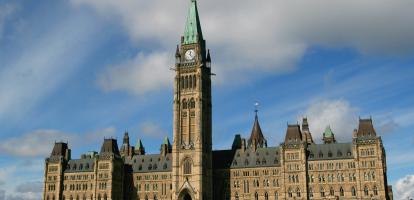The federal fiscal snapshot in July projects a pandemic-induced deficit of $343-billion in 2020-21 and a debt-to-GDP ratio jumping to 49 per cent from 30 per cent. Don’t forget provincial debt, too. An Ontarian’s combined government debt-to-GDP ratio will push toward 100 per cent of GDP and beyond.
Such a high debt burden is an ailment that will become threatening when the economy returns to normal operations and interest rates rise. Just as we have done with the COVID-19 pandemic, we should address this ailment head-on. Fortunately, there is an evidence-based treatment plan.
The least painful treatment is to rely on economic growth to reduce our debt burden. However, it is risky to rely on growth alone when interest rates will eventually rise. Our second option is to control future spending once our economy returns to more normal conditions.
However, with an aging population, an unrelenting growth in health care spending and major climate change challenges, containing spending growth will be challenging.
Our third and most painful treatment is for governments to find more revenue.
If Canada has to raise additional taxes, we should be mindful of how exactly we do so. Not all taxes are created equal, and some taxes have a significantly more negative impact on our economy than other taxes. Relying on taxes that are a drag on growth creates a vicious cycle and further impairs our ability to manage our debt burden. More painful remedies would be required, such as squeezing, spending and then having to raise taxes further anyway.
So, what are the most – and least – harmful taxes from an economic perspective?
Personal and corporate income taxes are generally very inefficient ways of raising tax revenues. Although often attractive politically, further increases to personal and corporate income tax rates should be avoided, since that would worsen work and investment disincentives. Moreover, recent research suggests that reducing high marginal personal and corporate income tax rates in Canada could actually result in higher personal and corporate income tax revenues.
Some politicians market high progressive income tax rates as a tool to reduce income inequality in Canada. At best, this only addresses a symptom of income inequality, not the underlying root causes, such as access to education and health care and an open and flexible labour market. As an alternative, gradually increasing the tax rate on income from capital and capital gains could be used to address inequality in income and wealth.
Recently, we have heard calls for introducing a wealth tax in Canada to raise revenue and reign in income inequality. Many countries – notably in Europe – have tried to introduce a wealth tax and have largely abandoned it. Their experience has been that wealth taxes do not raise significant revenue, are difficult and expensive to administer and ultimately harm economic growth.
Consumption taxes, such as the goods and services tax or harmonized sales tax, are better choices for raising additional revenue while limiting the negative effect on economic activity. We recognize this is a populist flash point, but appropriately designed, consumption taxes can be progressive. Therefore, increasing consumption taxes should be the main source for raising additional tax revenues.
Taxing the digital economy is another option. The Organisation for Economic Co-operation and Development’s efforts to create an international digital taxation framework are on life support, so Canada should examine how to tax the digital economy itself.
Following Quebec’s lead to subject e-commerce businesses located outside the province to its consumption tax is a start. It can generate significant revenue and level the playing field with conventional businesses.
Finally, governments worldwide are making significant efforts to ensure the economic recovery is a “green economic recovery.” Further increases to carbon taxes would make a positive contribution and can provide more revenue for managing our debt.
We have listened to our public-health experts in dealing with the medical aspects of COVID-19. We should now draw on economic and fiscal expertise in ensuring our economic recovery from COVID-19 is successful and robust.
Published in the Globe and Mail
Peter van Dijk is a Senior Fellow and Glen Hodgson is a Fellow-in-Residence at the C.D. Howe Institute.




